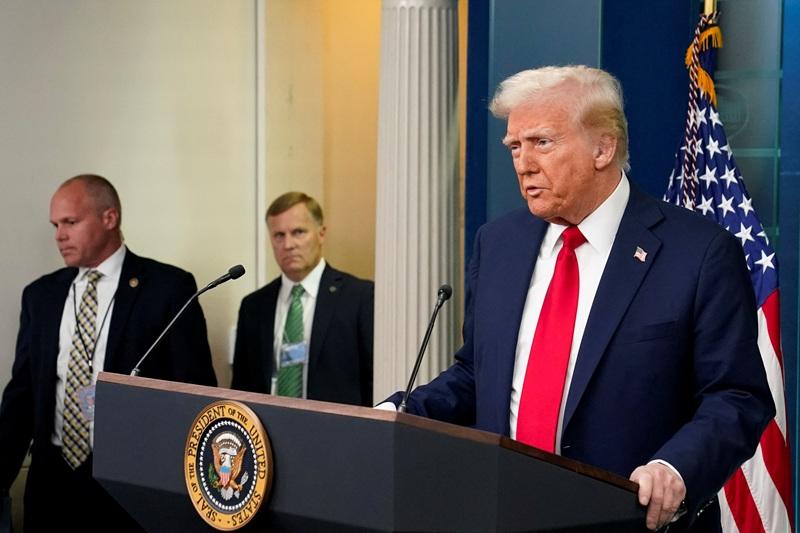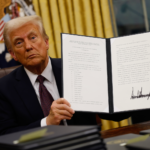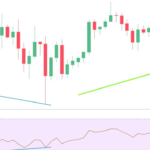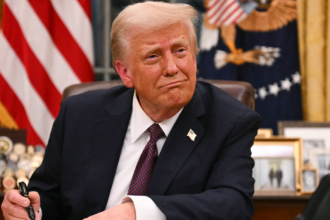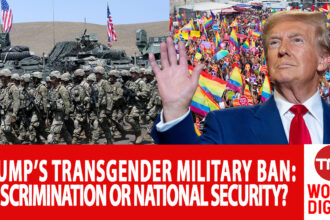President Trump signed an executive order on February 6 that authorizes aggressive economic sanctions against the International Criminal Court (ICC), accusing the body of targeting U.S. and Israeli officials. This decision comes amidst ICC investigations into alleged war crimes committed by U.S. service members in Afghanistan and Israeli troops in Gaza.
The ICC, based in The Hague, was established to prosecute individuals for international crimes such as genocide, war crimes, and crimes against humanity. Trump’s latest sanctions freeze U.S. assets and impose travel bans on ICC officials involved in these investigations. The sanctions include financial penalties and visa restrictions on unnamed individuals and their family members who assist in ICC investigations of US citizens or US allies.
More than 120 countries are members of the court, including the UK and many European nations. However, the U.S. and Israel, neither of which are members of the ICC, have long opposed its jurisdiction over their nationals.
The sanctions were announced during Israeli Prime Minister Benjamin Netanyahu‘s visit to Washington.
Trump’s executive order accuses the ICC of “illegitimate and baseless actions” and claims that the court has “abused its power” by issuing arrest warrants for Netanyahu and other Israeli officials. In his order, Trump argued the court must “respect the decision” of countries “not to subject their personnel to the ICC’s jurisdiction.”
Trump added: “This malign conduct in turn threatens to infringe upon the sovereignty of the United States and undermines the critical national security and foreign policy work of the United States government and our allies, including Israel.”
Responding to Trump’s order, the secretary general of Amnesty International, Agnès Callamard, said the order “sends the message that Israel is above the law and the universal principles of international justice.”
She added, “Today’s executive order is vindictive. It is aggressive. It is a brutal step that seeks to undermine and destroy what the international community has painstakingly constructed over decades, if not centuries: global rules that are applicable to everyone and aim to deliver justice for all.”
Critics argue that Trump’s sanctions could undermine the ICC’s ability to hold perpetrators of war crimes accountable. Human rights activists warn that this move could have a chilling effect on efforts to bring justice to victims of atrocities. The American Civil Liberties Union’s National Security Project has raised concerns about the impact on free speech and accountability.
Will other countries follow suit and impose their own sanctions on the ICC? How will this affect ongoing investigations and the court’s ability to function?


